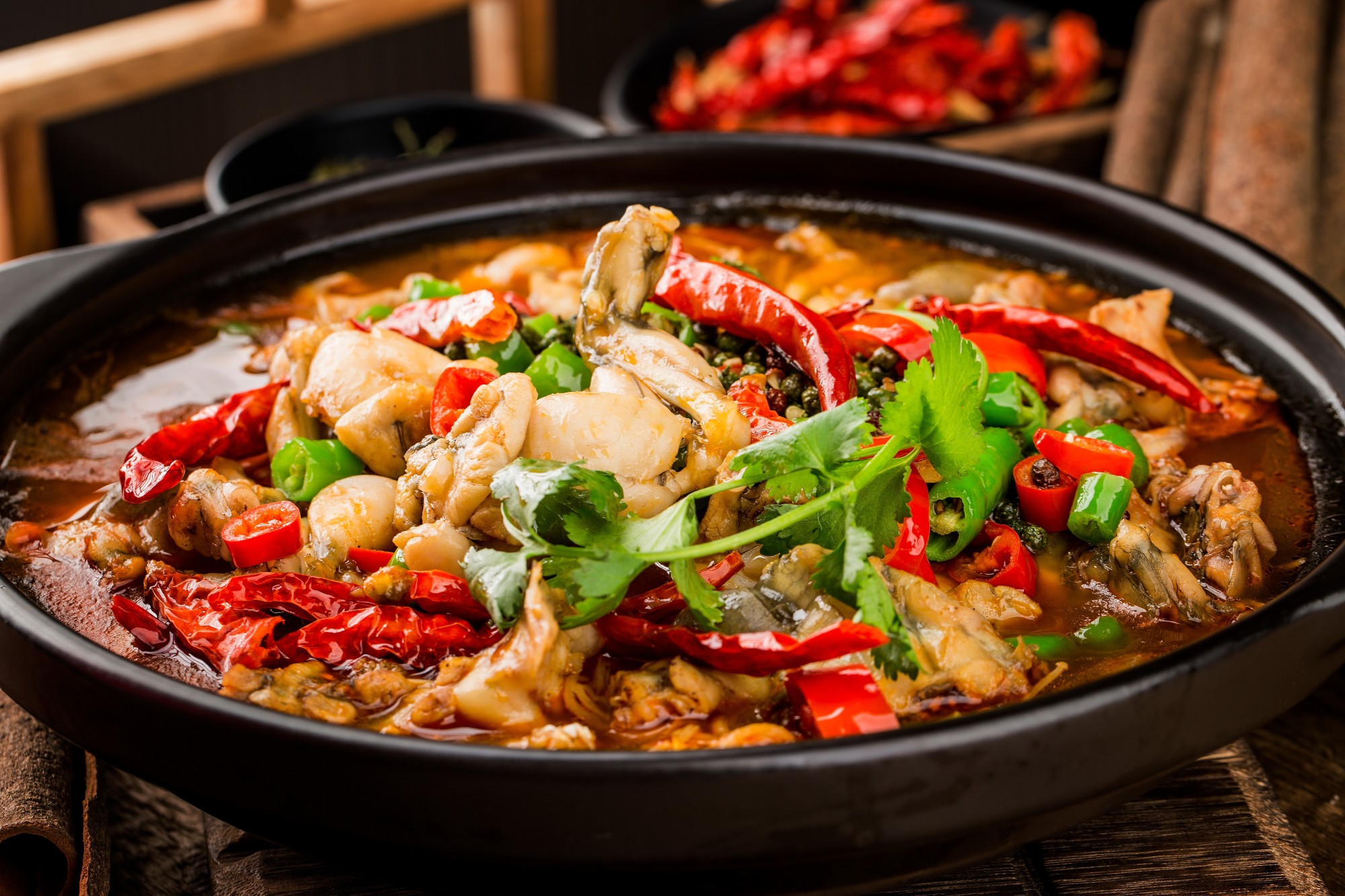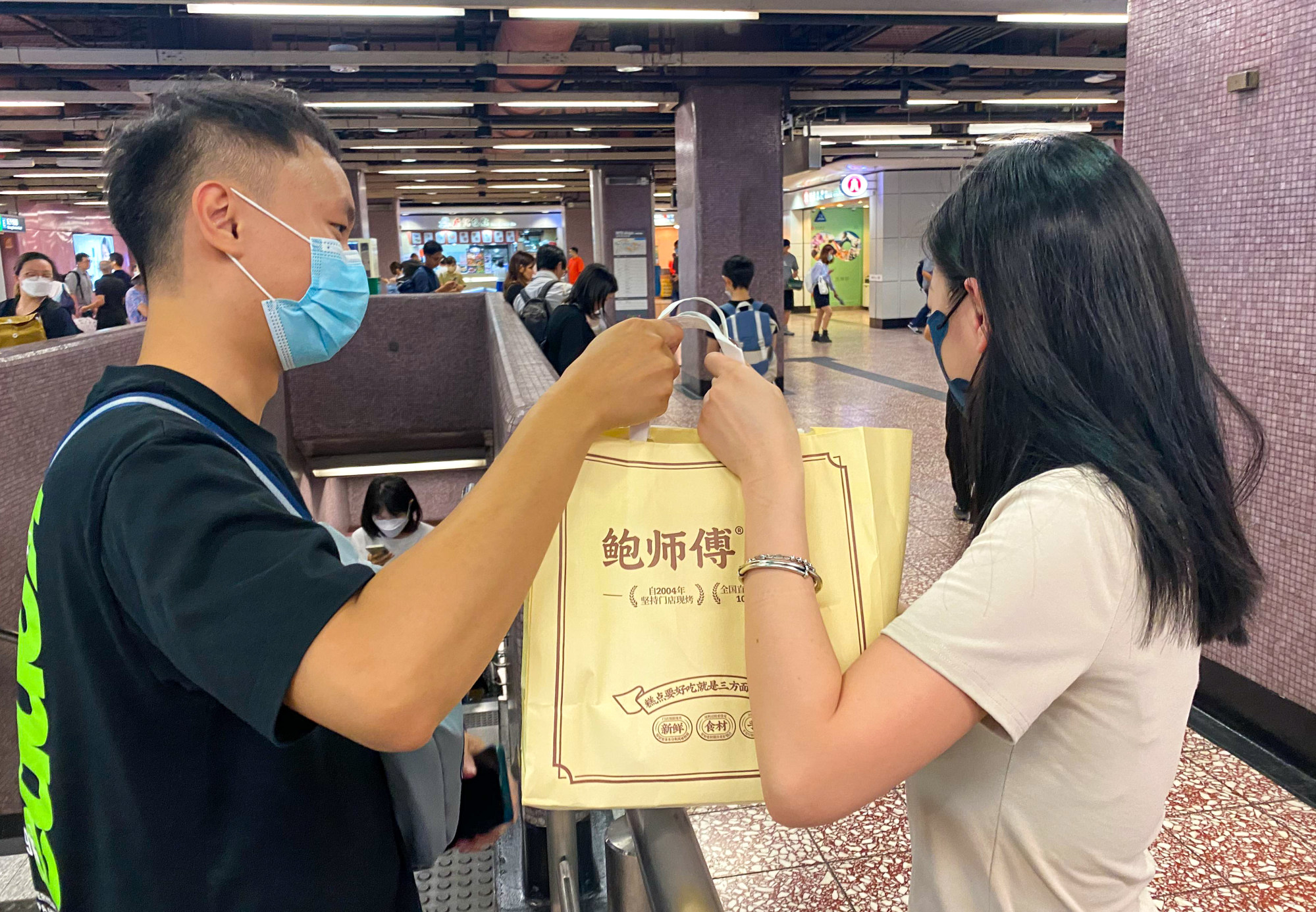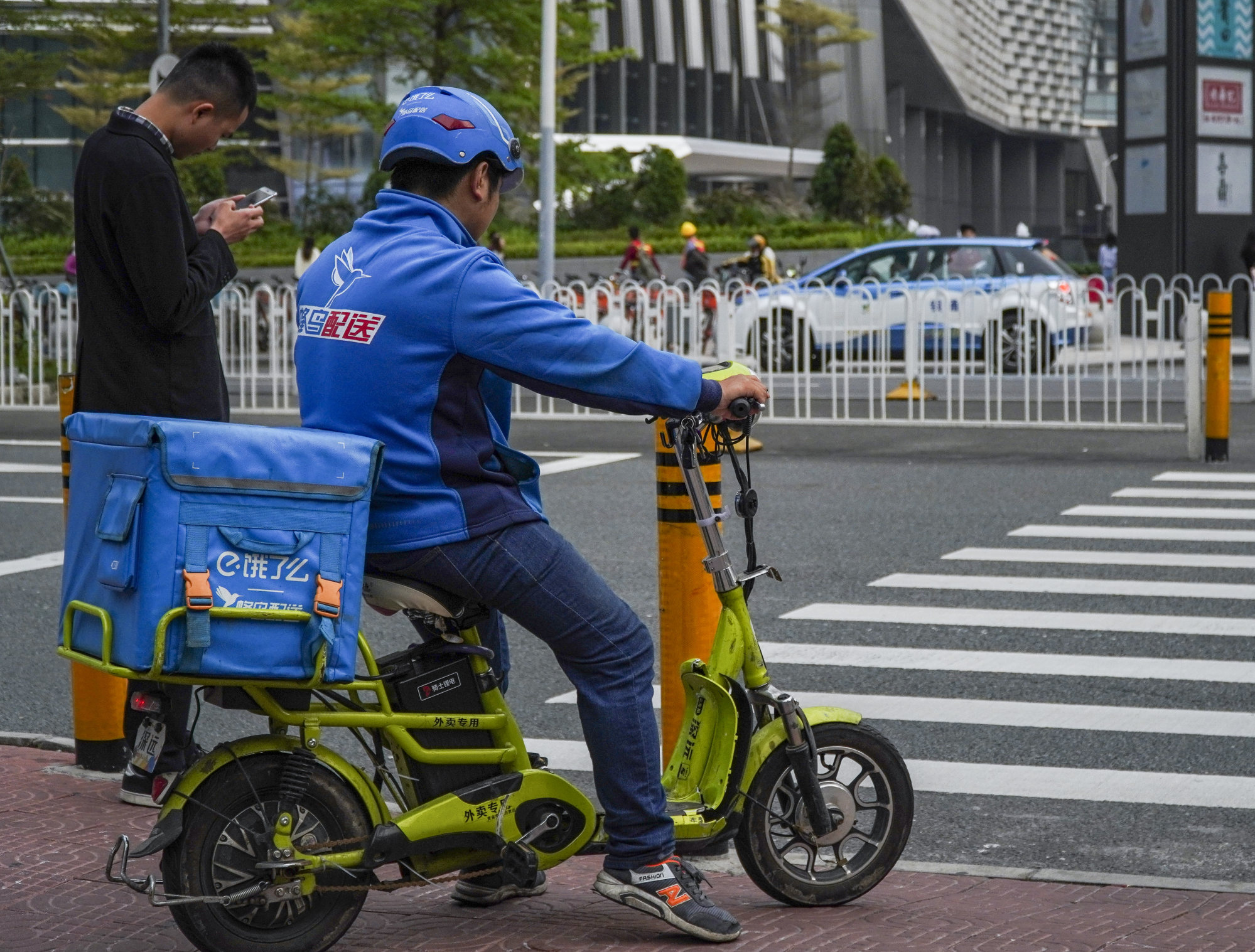
Hungry Hong Kong customers call on Shenzhen couriers for braised bullfrog, duck neck and other mainland Chinese delicacies
- ‘Daigou’ couriers take orders online before picking up food, drinks and snacks to bring to Hong Kong
- Customers are a mix of Hongkongers and mainland Chinese who miss specialities from across the border
The 21-year-old mainland Chinese university student had five food deliveries, including pastries and cooked dishes such as stewed bullfrog, spicy stir-fried duck and chicken offal.
He is part of a trend dubbed daigou, which means “buying on behalf of” in Chinese, with agents earning a profit from purchasing mostly food items in Shenzhen to deliver to clients in Hong Kong.
It is a reverse of what has gone on for a long time, where agents would buy goods such as milk powder, skincare products and luxury items in Hong Kong to take to customers on the mainland.
When the Post accompanied Ye on a recent delivery trip, he took about three hours to collect all the cooked food and snacks in Shenzhen for his Hong Kong customers.
He went to a Hunan cuisine restaurant in a downtown shopping centre, queued for meat floss cakes at a bakery, and waited at a metro station for his takeaway orders to arrive.
Once on the Hong Kong side, he delivered the items one by one at MTR stations, handing them to clients at the ticket barriers.
It was 6.45pm when he called it a day and headed back to Shenzhen, having earned 210 yuan (US$29) in delivery fees.

Ye said he had been making such cross-border trips about four days a week since March, earning between 200 yuan and 800 yuan each time.
“There are more Hongkongers who want to try food from mainland China, and there are also mainlanders living in Hong Kong who long for a taste of home,” he said.
Since the full reopening of the border in February after about three years of Covid-19 pandemic restrictions, more people in Hong Kong have been using agents like Ye to buy food and snacks.
The most sought-after items range from bubble tea to meat floss cakes, braised duck necks, Sichuan-style boiled fish with pickled cabbage, and bullfrog cooked in different ways.
Many items are not available in Hong Kong, while others cost less across the border.
“The mainland food products are appealing because they are cheaper and also promoted by influencers,” Ye said.
The daigou agents include mainlanders and Hongkongers, some traders who switched to “reverse trading” from Shenzhen to Hong Kong, and newcomers quick to cash in on the trend.
Ye, a third-year automotive engineering student, said he started delivering food and snacks in his free time after spotting the trend on mainland social media platform Xiaohongshu, where most traders advertised their business.
He receives orders online the night before, accepting a maximum of seven each trip. He has about 60 regular clients, mostly women and mainlanders working or studying in Hong Kong.
He said the most popular items were cakes from the Bao’s Pastry bakery chain, bubble tea from the Nayuki and Ah Ma Hand Made drinks chains, braised duck from Juewei Duck Neck and Zhou Hei Ya, Hunan dishes and grilled fish.

He charges a delivery fee of 10 yuan for each cup of bubble tea, and between 30 yuan and 50 yuan each for other orders depending on the size.
But there are also hiccups.
Ye said the most challenging part was working out the sequence of deliveries and he sometimes got lost along Hong Kong’s rail network.
He had to compensate for spilled food, and was once stood up by a client, losing 100 yuan. Now he requires clients to pay in advance.
Like Ye, Shangguan Xiaoxi*, 38, also spotted growing demand from Hong Kong for mainland-made products on social media and became a part-time daigou agent in March, after leaving her job as a project manager in a Shenzhen company.
She has about 170 clients, half of them mainlanders living in Hong Kong and the majority young women.
She said she worked four days a week, accepting five to seven orders each time, and earned about 2,400 yuan a month after deducting transport expenses.
She said the income was not good, given the difficulty of travelling alone while laden with orders. She often returned home exhausted, just before midnight.
But Shangguan said she would continue while looking for a full-time job.
“By doing it, I can bring convenience to others and also earn money,” she said. “I hope the exchange of food can bring Hong Kong and the mainland closer.”
Hong Kong nurse Lisa Chan, 33, used to visit Shenzhen regularly before the pandemic, and missed the food and snacks there when cross-border travel was restricted. She began using the daigou agents early this year.

Every week or two she orders cooked dishes such as Sichuan-style boiled fish with pickled cabbage and bullfrog from Shenzhen restaurants, and chilli sauce and biscuits from supermarkets. She spends about 500 yuan each time, plus a delivery fee of between 30 and 90 yuan.
Chan said she received her orders at Yau Ma Tei or Mong Kok MTR stations near her workplace.
“I like mainland food and snacks which are delicious and authentic,” she said.
For mainlander Rain Zhu Yujia, a 32-year-old investment analyst who came to Hong Kong in 2017, the pastries, fruit tea and grilled fish from Shenzhen soothed his homesickness.
“I long for a taste of home,” said Zhu, originally from Kaifeng city in central Henan province, who makes an order every week.
He said the mainland had a wider variety of food and snacks and prices were lower than in Hong Kong.
A grilled fish cost 138 yuan, a cup of fruit tea, 20 yuan, and about a dozen cakes, tarts and puffs, 60 yuan, he said.
But some customers have complained online that the food they ordered from Shenzhen was bad by the time it arrived, and had made them sick.
At the Liantang-Heung Yuen Wai control point, a prominent poster put up by the Food and Environmental Hygiene Department warns of the risks, including food poisoning, associated with meals carried across the border by agents.
Senior Counsel Ronny Tong Ka-wah, a member of the city’s Executive Council, the key decision-making body, said the current practice did not break the law as it involved delivery of products to individual consumers, not the illegal import of items for sale.
He did not think the government should intervene or crack down on the daigou agents’ activities.
Lawmaker Edward Lau Kwok-fan, who represents New Territories North, was aware of the trend, but also did not think any action was needed as long as the traders did not bring in banned items.
But he advised Hong Kong consumers to be cautious of food safety risks.
*Name changed at interviewee’s request.

